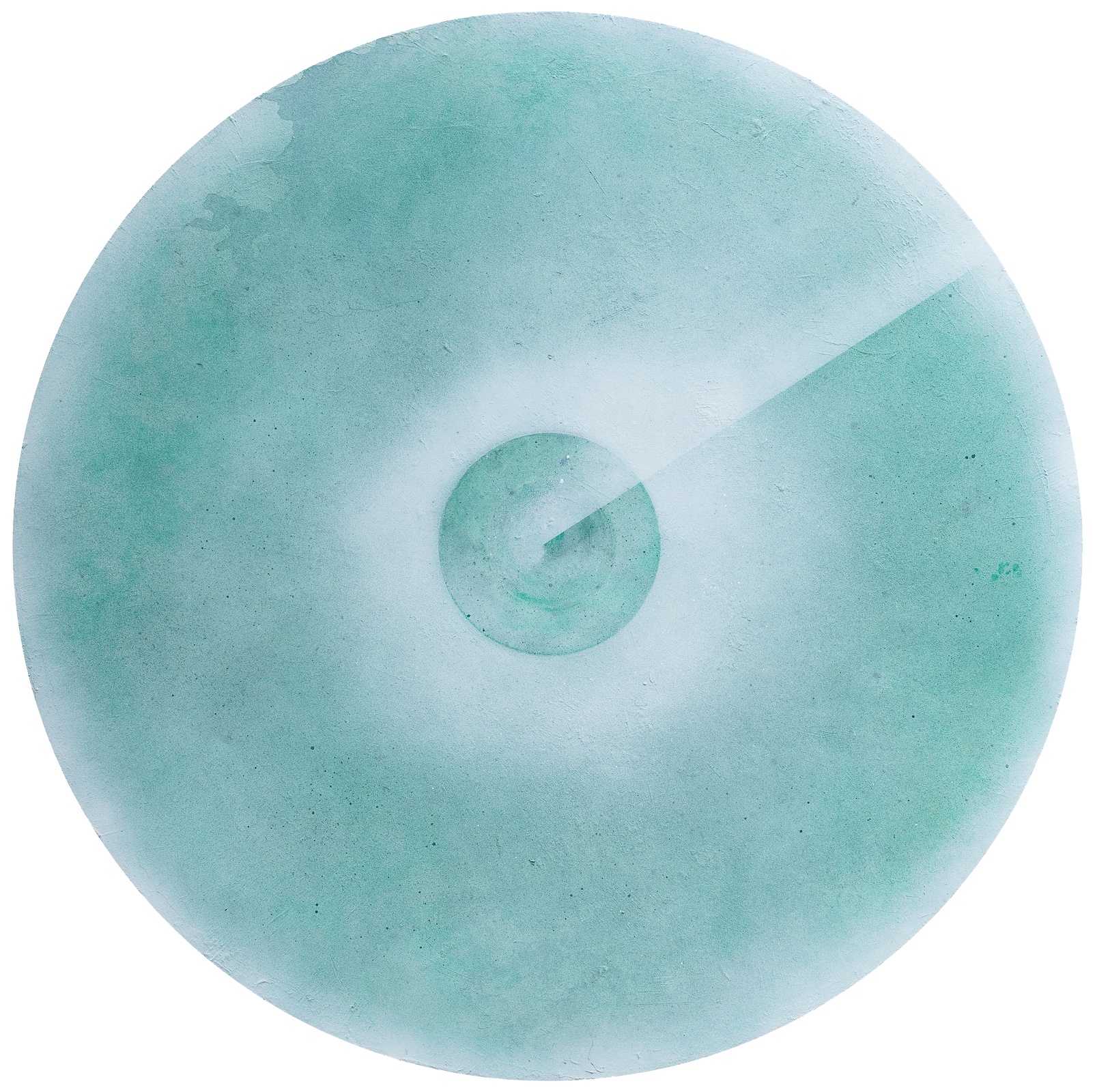Gardens on fire
Fire of the Flower Power
Throughout the history of mankind, the element of fire has been inextricably linked to the human existence and the progress of mankind. One and a half million years ago, men were sustained by using fire – to cook, create vessels and stay warm. Fire literally lit the pathway out of the darkness! In many ways like fire, the water element (the germ of human life itself ), evokes our primal emotions and forms a nexus to our forefathers’ tribes.
My idea of using fire to creating flowers and gardens is inspired by this notion of the evanescence of life itself! Both flowers and flames are ephemeral: a great bloom withers, turning into dust; a flame burns, turning everything to ash! Nature transformed by fire. All life turns to dust; ashes to ashes, dust-to-dust! Our human spirit, however, can rise from these ashes – and this is what many religions believe…
When observing these flowers and gardens which are painted, or even better said, formed from ashes, they provide a momentary sanctum of serenity as it is a spiritual communion with nature! The fusion of creation and destruction. The fire, in all its power, exists in a fleeting, yet fragile, moment. I create something that could disappear in an instant!
Many gardens cultivated by humanity have indeed been an inspiration, as stated by Bernard Bro, a French Dominican priest:
Three gardens surrounded mankind:
The garden of Paradise (Eden)
The garden of Agony
The garden of Resurrection
We all experience this trinity (Paradise, Agony and Resurrection) in our lives, but rarely in the same order.
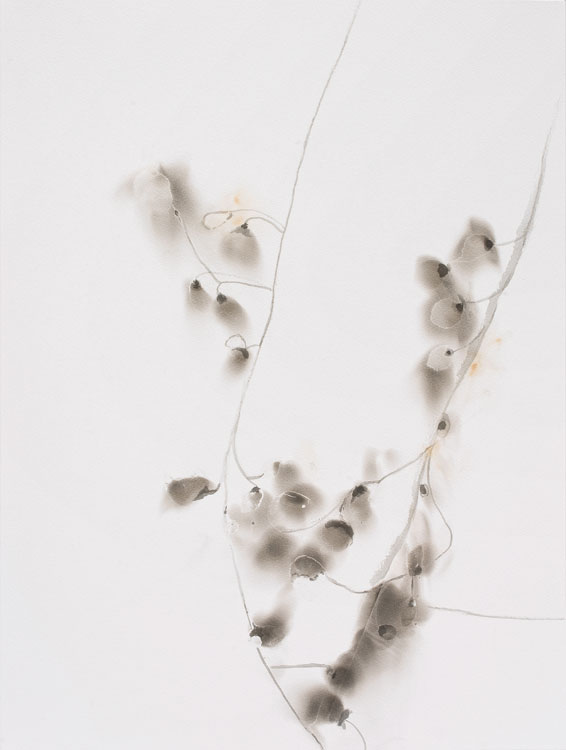
Cherry Blossom / Sakura (detail) – 2019
46 x 41 cm – 18 1/8 x 16 1/8 in.
Burnt paper mounted on canvas
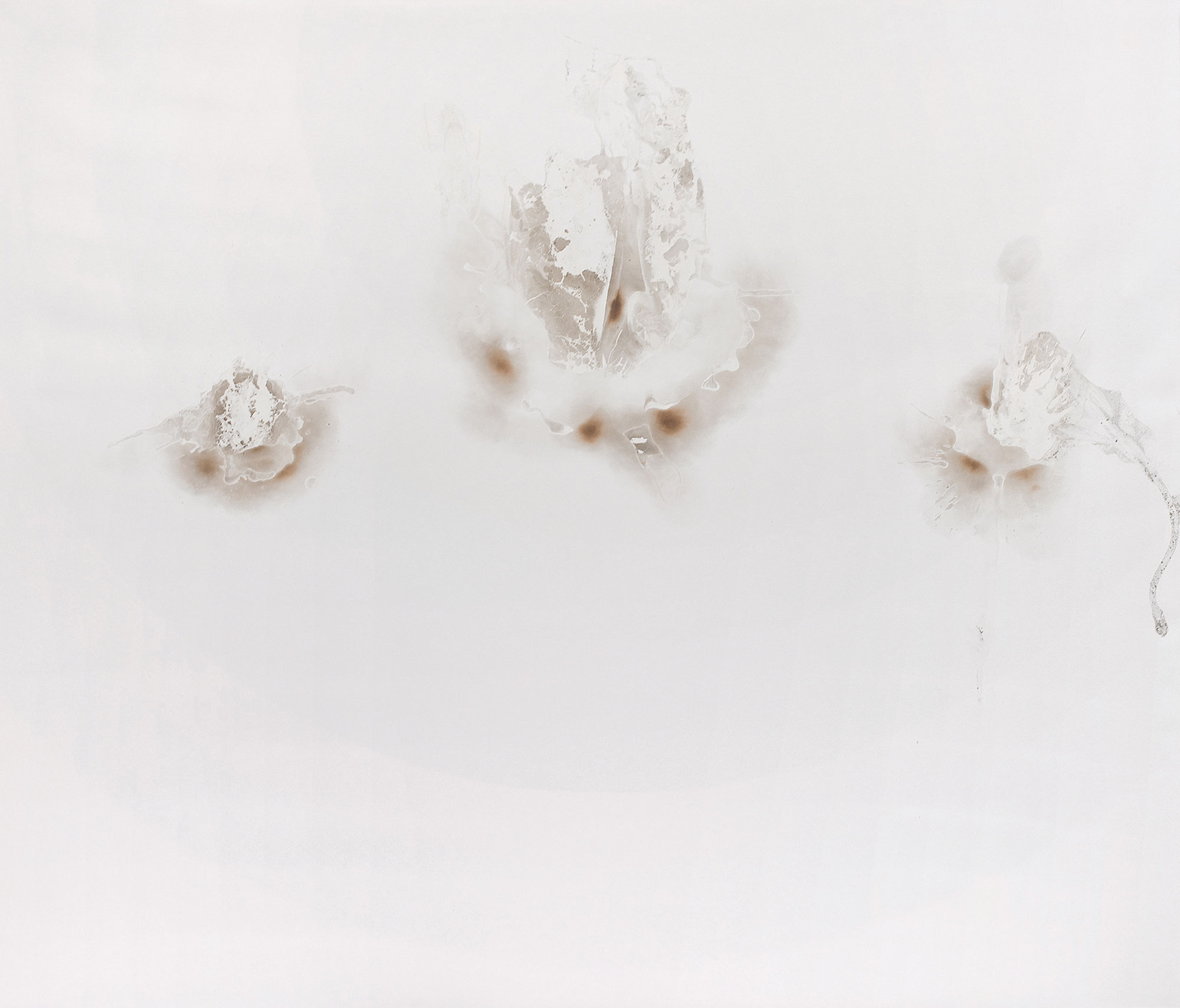
The Vanishing Tulip – 2019
171 x 200 cm – 67 5/16 x 78 3/4 in.
Burnt paper mounted on canvas
Look at the flowers there, those faithful of the earthly, to whom a fate from the far edge of fate we’re lending, – but who knows ! If they bemoan their wilting it’s really on us to then be their moaning.
All wants to waft. We wander ‘round and weightily lay ourselves on all, as our weight we treasure ; oh ! to all things, what wearisome teachers are we, for endless childhood is their pleasure.
Would one take them inside his inner sleep and sleep deep with the things – : oh ! how he would emerge lighter, another, into another day, out of the common deep.
Or he might stay, and they would flower and it would please them to praise the convert, who then would seem a brother to all those quiet sisters in the meadows’breeze.
Rainer Maria Rilke
The Sonnets to Orpheus (1922), 2017
Translated by Claude Neuman
Coeuvres-et-Valsery: Ressouvenances, Coll. Polychrome.
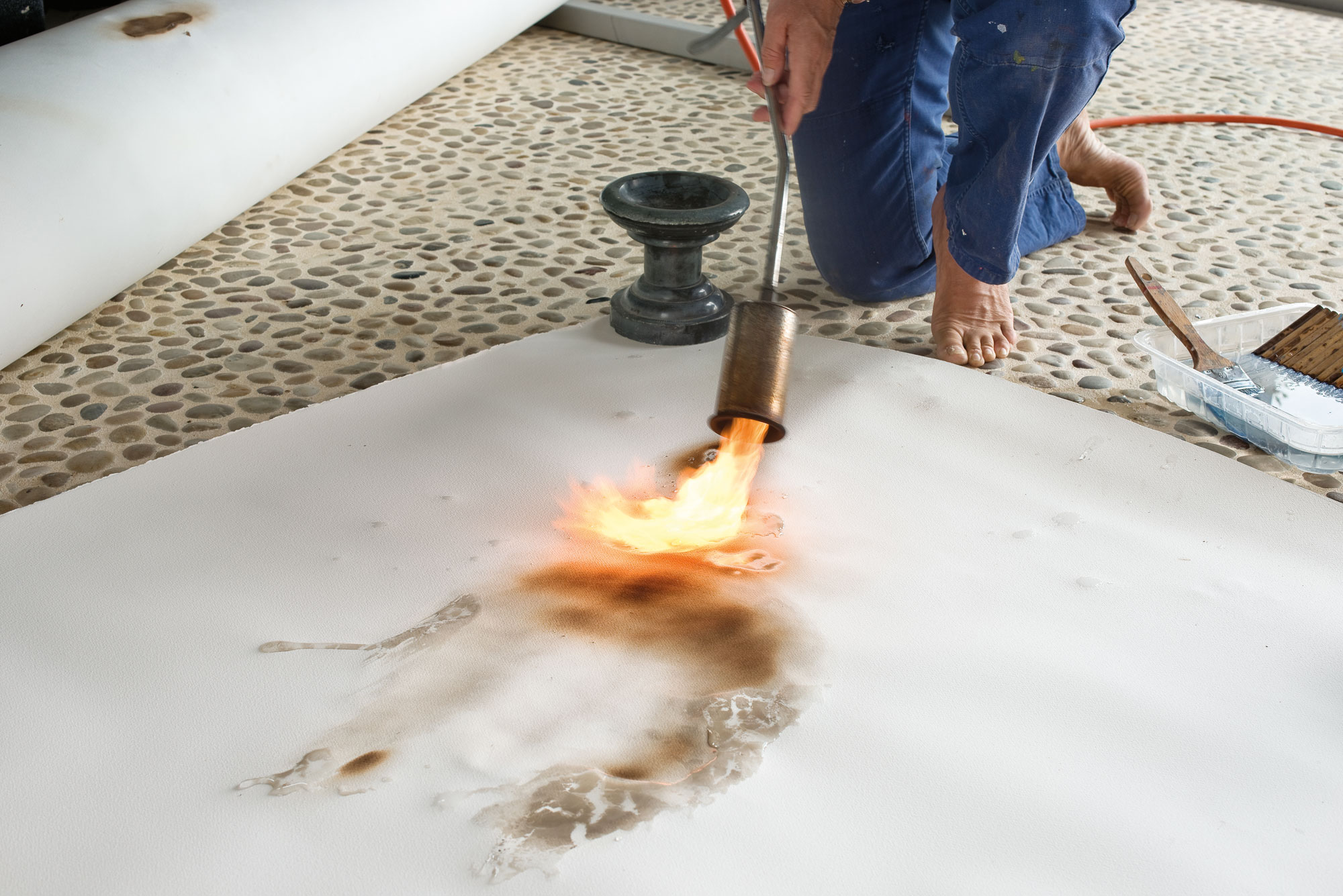
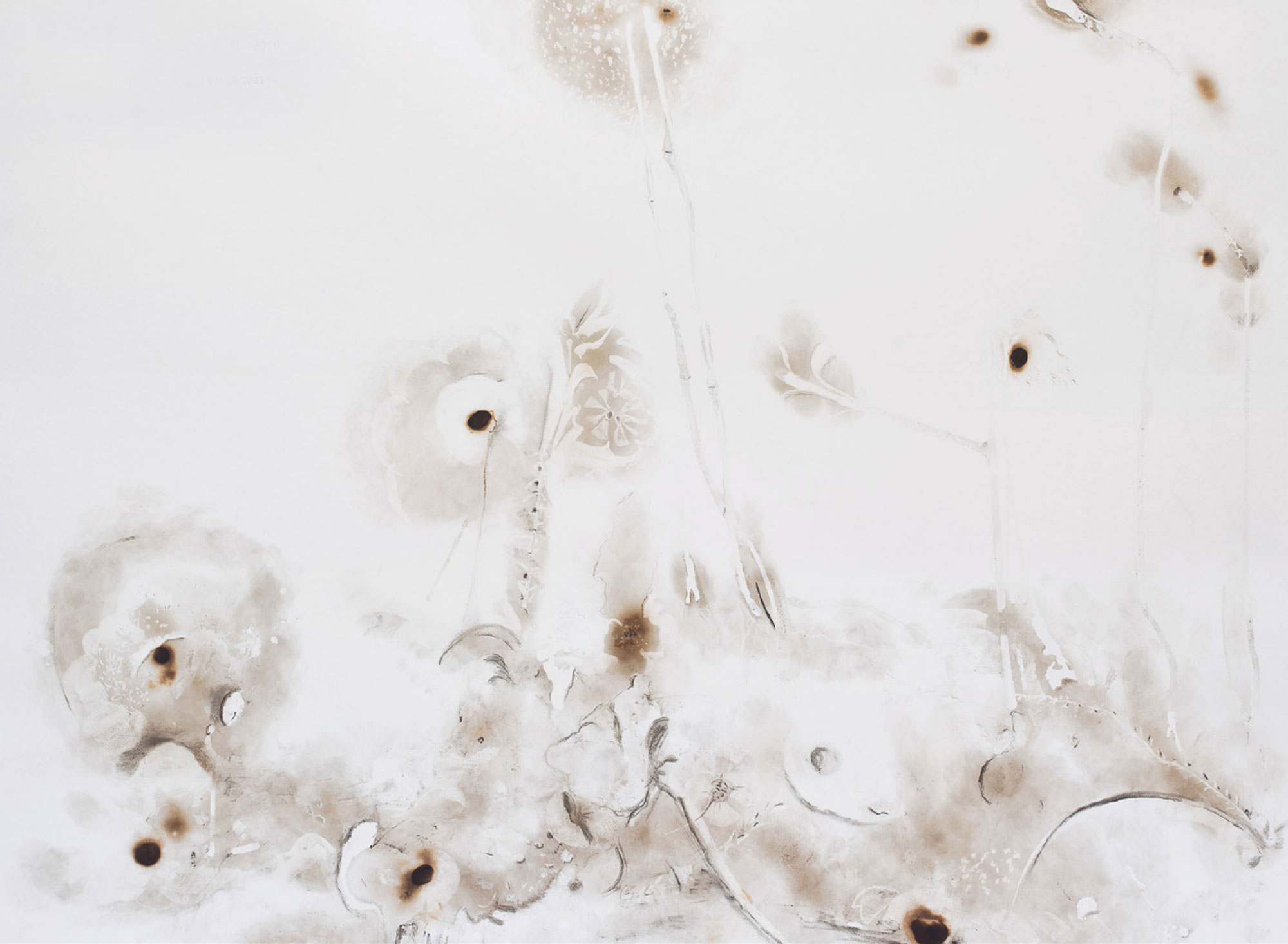
The Fertility Garden (detail) – 2019
233 x 201 cm – 91 3/4 x 79 1/8 in.
Burnt paper mounted on canvas
My artistic process is inspired by Chinese calligraphy. This form of written communication is based upon the human ‘gesture’ in which meaning is conveyed.
When drawing with water, I leave some blank spaces on the paper on purpose. This provides spatial depth for the water to flow and find its way freely.
I then use a gas torch as a brush to apply a powerful heat source which makes the water dry faster in places.
As a result, this ignites a movement between water and fire, which gives birth to an imaginary floral world.
Unlike calligraphy, there is no re-touching possible; it is the gesture that dominates.
The gesture guides the torch, which in turn guides the water to a specific direction.
If the gesture is too fast, it can burn; if it is too slow, it does not create the desired effect.
In order to work with fire, you have to work with patience and care, because in no time it’s vanished!
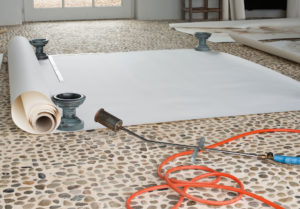
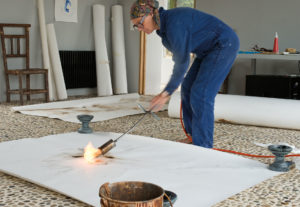
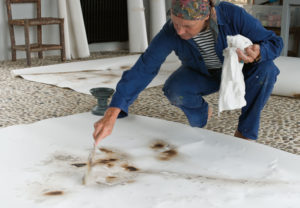
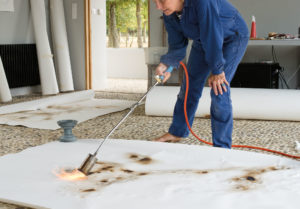
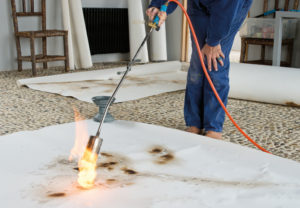
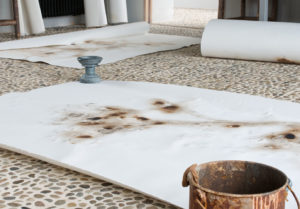
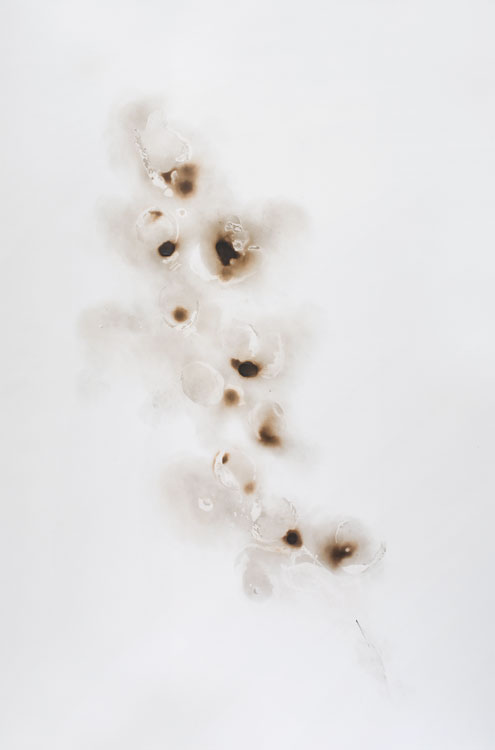
Fragile Prunus – 2019
190 x 130 cm – 74 13/16 x 51 3/16 in.
Burnt paper mounted on canvas
Poppy’s
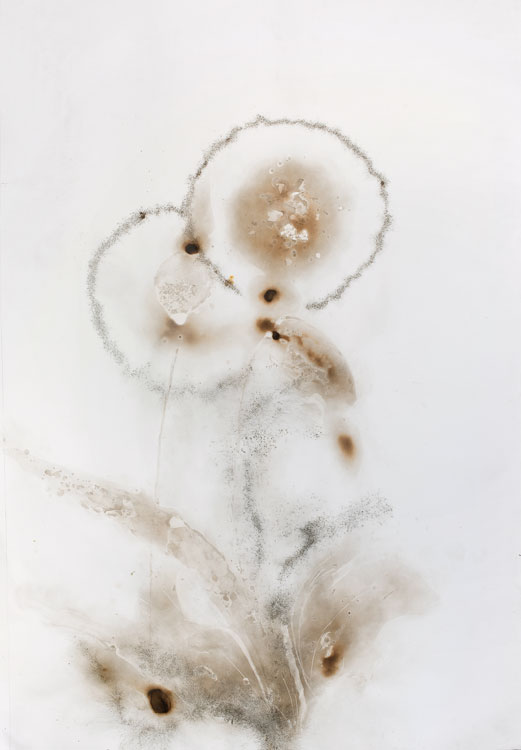
Poppy’s Explosion (detail) – 2020
190 x 130 cm – 74 13/16 x 51 3/16 in.
Gunpowder on paper
It is worth noting that the Chinese cultural influence is significant – gunpowder was invented in Ancient China! After I have finished the drawing with the torch and water, I apply gunpowder to the paper.
This process is reminiscent of Buddhist monks who create a coloured sand mandala. In a similar way, it involves creation and destruction, as the sand mandala is ritualistically destroyed once it has been finished.
Here, the gunpowder explodes and leaves a burning impact. As a result, I cover the gunpowder with a thick paper. When the gunpowder ignites and explodes, it creates a burst of smoke as well as the acrid smell of burnt paper and gunpowder.
The explosion leaves a harsh and raw pattern on the paper. The outcome is never the same – sometimes the paper is completely burnt, other times it leaves a hundred of little specks and pixels as it creates its own galaxy.
As the process of water and fire torch create a poetic outcome, in contrast, the brutal result of the gunpowder method is more definitive, precise and, fundamentally, raw.
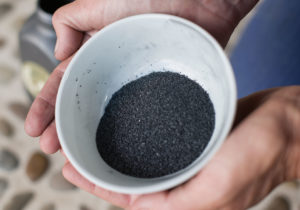
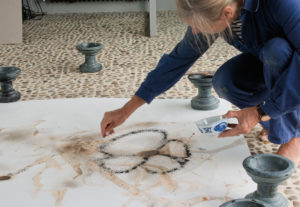
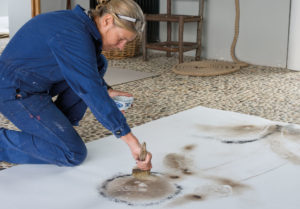
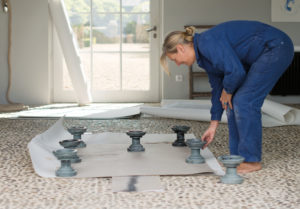
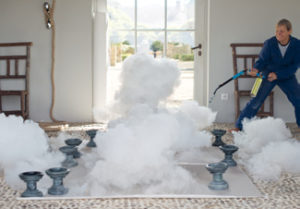

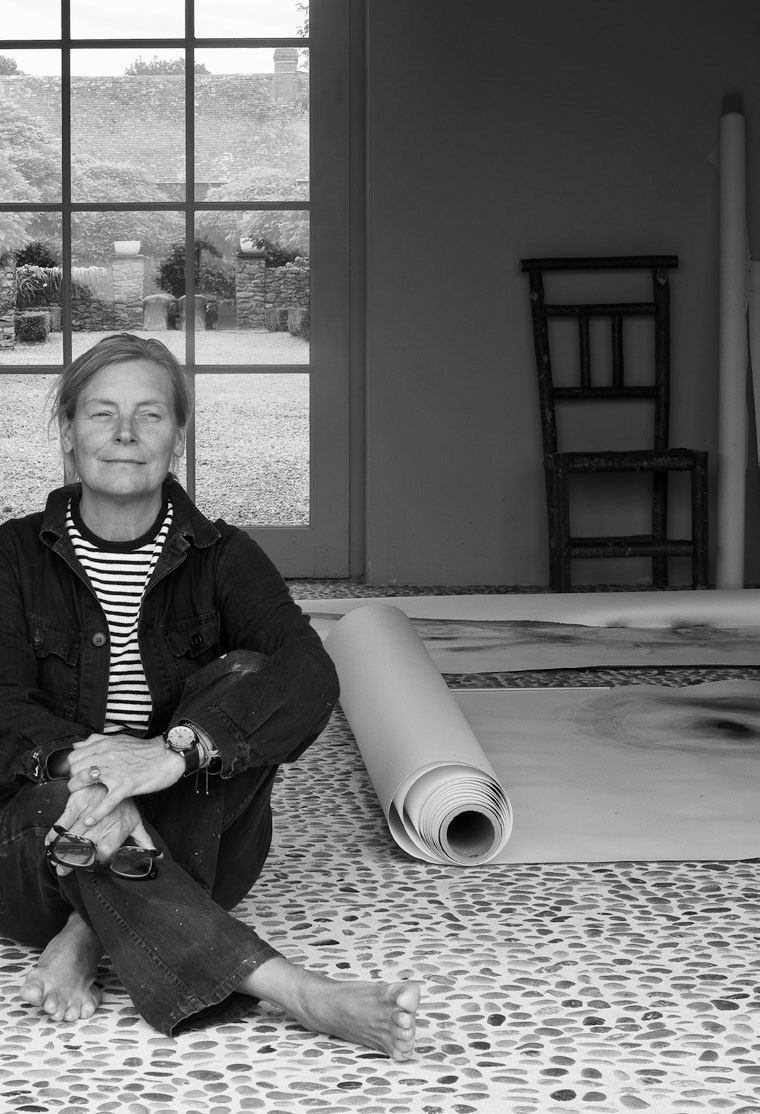
Group show
Vanderven Oriental Art – Bois le Duc, Netherlands
November 2019 – January 2020
Group show
Kohler Gallery – Geneva, Switzerland
May 2019
“Désirée Engelen” – Solo show
Perpitch & Brigand Gallery – Paris, France
May 18 – July 18, 2018
Paris Gallery Weekend
Edition #5
May 26-27, 2018
“Désirée Engelen” – Solo show
Art Paris Art Fair (Perpitch & Bringand Gallery) Grand Palais, Paris, France
April 5-8, 2018
Pad 2017 (Perpitch & Bringand Gallery)
Les Tuileries, Paris, France
March 2017
“Happy” – Solo show
Nest Gallery – Geneva, Switzerland
May 2016
Désirée Engelen
5-7, rue Paul Louis Courier
75007 Paris – France
dlaurenceauengelen@gmail.com
desireeengelen.com
On Instagram: desiree_engelen_paintings



